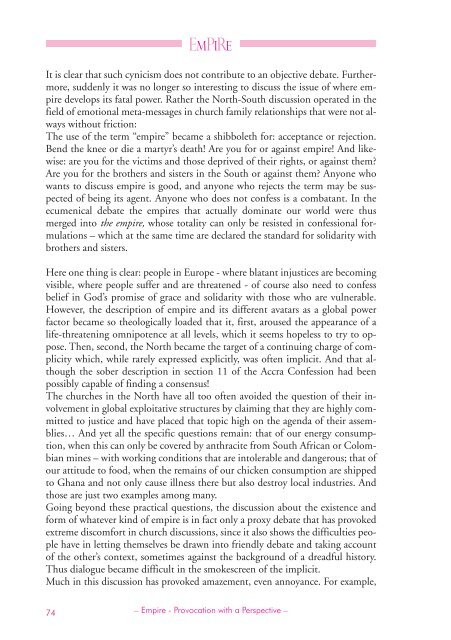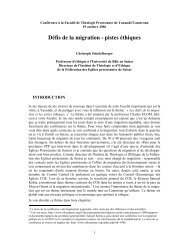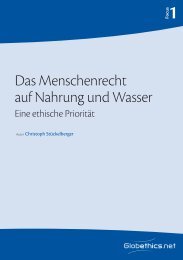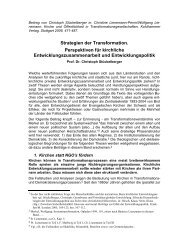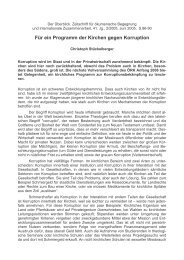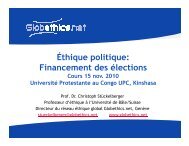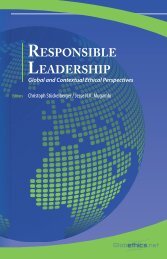BREAK THE CHAINS OF OPPRESION AND THE YOKE OF ...
BREAK THE CHAINS OF OPPRESION AND THE YOKE OF ...
BREAK THE CHAINS OF OPPRESION AND THE YOKE OF ...
You also want an ePaper? Increase the reach of your titles
YUMPU automatically turns print PDFs into web optimized ePapers that Google loves.
EMpire It is clear that such cynicism does not contribute to an objective debate. Furthermore,<br />
suddenly it was no longer so interesting to discuss the issue of where empire<br />
develops its fatal power. Rather the North-South discussion operated in the<br />
field of emotional meta-messages in church family relationships that were not always<br />
without friction:<br />
The use of the term “empire” became a shibboleth for: acceptance or rejection.<br />
Bend the knee or die a martyr’s death! Are you for or against empire! And likewise:<br />
are you for the victims and those deprived of their rights, or against them?<br />
Are you for the brothers and sisters in the South or against them? Anyone who<br />
wants to discuss empire is good, and anyone who rejects the term may be suspected<br />
of being its agent. Anyone who does not confess is a combatant. In the<br />
ecumenical debate the empires that actually dominate our world were thus<br />
merged into the empire, whose totality can only be resisted in confessional formulations<br />
– which at the same time are declared the standard for solidarity with<br />
brothers and sisters.<br />
Here one thing is clear: people in Europe - where blatant injustices are becoming<br />
visible, where people suffer and are threatened - of course also need to confess<br />
belief in God’s promise of grace and solidarity with those who are vulnerable.<br />
However, the description of empire and its different avatars as a global power<br />
factor became so theologically loaded that it, first, aroused the appearance of a<br />
life-threatening omnipotence at all levels, which it seems hopeless to try to oppose.<br />
Then, second, the North became the target of a continuing charge of complicity<br />
which, while rarely expressed explicitly, was often implicit. And that although<br />
the sober description in section 11 of the Accra Confession had been<br />
possibly capable �of finding � a consensus! � � �<br />
The churches in the North have all too often avoided the question of their involvement<br />
in global exploitative structures by claiming that they are highly committed<br />
to justice and have placed that topic high on the agenda of their assemblies…<br />
And yet all the specific questions remain: that of our energy consumption,<br />
when this can only be covered by anthracite from South African or Colombian<br />
mines – with working conditions that are intolerable and dangerous; that of<br />
our attitude to food, when the remains of our chicken consumption are shipped<br />
to Ghana and not only cause illness there but also destroy local industries. And<br />
those are just two examples among many.<br />
Going beyond these practical questions, the discussion about the existence and<br />
form of whatever kind of empire is in fact only a proxy debate that has provoked<br />
extreme discomfort in church discussions, since it also shows the difficulties people<br />
have in letting themselves be drawn into friendly debate and taking account<br />
of the other’s context, sometimes against the background of a dreadful history.<br />
Thus dialogue became difficult in the smokescreen of the implicit.<br />
Much in this discussion has provoked amazement, even annoyance. For example,<br />
������������������������������������������<br />
� � � � � � ��������������������<br />
�<br />
74<br />
– Empire - Provocation with a Perspective –


